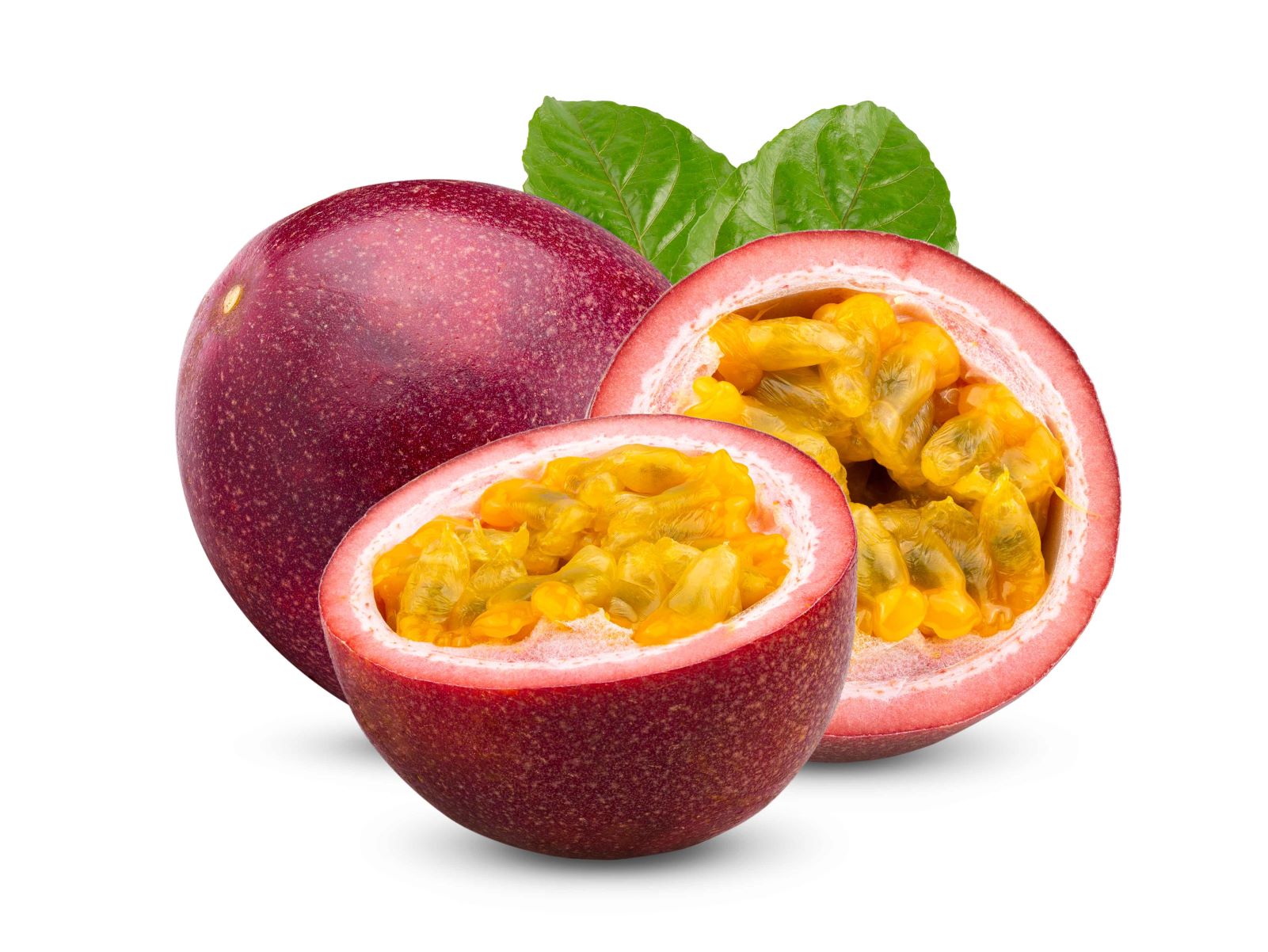
Passion fruit is an exotic fruit that is not only visually appealing with its vibrant purple color and wrinkled skin, but it also packs a delicious and tangy flavor that can instantly transport your taste buds to a tropical paradise. This fascinating fruit, known for its versatility and unique characteristics, is not just a treat for the senses, but it also offers a wide range of health benefits.
In this article, we will explore 20 fascinating and informative facts about passion fruit, from its origins and varieties to its culinary uses and nutritional value. Whether you are already a fan of passion fruit or simply curious about this tropical delight, join us as we dive into the world of passion fruit and discover what makes it such a beloved fruit among food enthusiasts and health-conscious individuals alike.
Key Takeaways:
- Passion fruit is a tropical fruit with a captivating aroma and tangy taste. It’s packed with nutrients, can be used in various dishes, and even has skin and hair benefits.
- With its colorful skin and abundance of seeds, passion fruit is not only delicious but also offers potential health benefits, including anti-cancer properties. It’s a guilt-free indulgence with minimal calories.
The Origin of Passion Fruit
Passion fruit is native to South America, specifically Brazil, Paraguay, and Argentina. It was later introduced to other tropical regions around the world, such as Hawaii and Australia.
Aromatic and Exotic Flavor
The fruit gets its name from its captivating aroma and intense, tangy taste. The flavor profile of passion fruit is a delicious blend of sweet and tart notes.
The Colorful Outer Skin
The exterior of passion fruit is vibrant and textured, with colors ranging from deep purple to bright yellow. The skin wrinkles as the fruit ripens, indicating its readiness to be enjoyed.
Numerous Varieties
There are several varieties of passion fruit, including purple passion fruit, yellow passion fruit, and giant granadilla. Each variety has its own unique characteristics.
Nutritional Powerhouse
Passion fruit is packed with essential nutrients, including vitamin C, vitamin A, dietary fiber, and antioxidants, making it a healthy addition to your diet.
Abundance of Seeds
Inside the fruit, you’ll find a gelatinous pulp filled with small black seeds. These seeds are edible and add a delightful crunch to the eating experience.
Versatile Culinary Uses
Passion fruit is widely used in various culinary creations. It can be enjoyed fresh, juiced, or added to desserts, smoothies, cocktails, dressings, and sauces to enhance their flavor.
Tropical Beverage Flavoring
Passion fruit is commonly used as a flavoring agent in beverages, such as juices, cocktails, and tropical-inspired mocktails. It adds a delightful tropical twist.
Skin and Hair Benefits
Passion fruit is not only good for the taste buds but also for your skin and hair. It contains antioxidants that help promote healthy skin and maintain luscious locks.
Medicinal Properties
In traditional medicine, passion fruit has been used to alleviate symptoms of anxiety, insomnia, and digestive issues. It is also believed to possess anti-inflammatory properties.
Cultivated Around the Globe
Passion fruit is now cultivated in various tropical and subtropical regions worldwide, including Africa, Asia, and the Caribbean.
Climber Plant Characteristics
Passion fruit grows on vigorous, climbing vines that can reach up to 20 feet in length. These strong vines cling to structures and create an attractive garden display.
Short Lifespan
Once harvested, passion fruit has a relatively short shelf life. It is best consumed when fresh and ripe to fully experience its delicious flavor.
Insect-Pollinated Flowers
Passion fruit flowers are intricately designed and are mainly pollinated by specific insects, such as bees and butterflies.
Minimal Calories
Passion fruit is relatively low in calories, making it a guilt-free indulgence. A serving typically contains around 17 calories.
Symbolism and Cultural Significance
Passion fruit has symbolic meaning in various cultures. It is often associated with sensuality, abundance, and vitality.
Passion Fruit Tea
Passion fruit tea is a popular beverage that offers a refreshing and soothing experience. It can be enjoyed hot or cold.
Natural Source of Fiber
A single serving of passion fruit provides a substantial amount of dietary fiber, promoting healthy digestion and aiding in weight management.
Anti-Cancer Properties
Studies have suggested that the antioxidants present in passion fruit may have anticancer effects, providing potential health benefits.
Cultivating Your Own Passion Fruit
If you have a suitable climate or growing conditions, you can try cultivating your own passion fruit vine in your backyard or garden. It can be a rewarding and flavorful experience.
These 20 passion fruit facts highlight the uniqueness and versatility of this tropical fruit. Whether enjoyed fresh, juiced, or incorporated into various culinary creations, passion fruit is truly a delightful addition to any food lover’s repertoire.
Conclusion
In conclusion, passion fruit is a fascinating fruit with numerous health benefits and a unique flavor profile. Whether consumed fresh, in juice form, or as an ingredient in various recipes, passion fruit offers a delightful combination of sweetness and tartness. With its abundance of vitamins, minerals, and antioxidants, it provides an excellent boost to the immune system and promotes overall well-being. Additionally, passion fruit is known for its anti-inflammatory properties and its ability to improve digestion and relieve stress. So next time you come across this exotic fruit, don’t hesitate to indulge in its delicious taste and reap the many benefits it has to offer.
FAQs
1. How do I choose a ripe passion fruit?
When selecting a ripe passion fruit, look for wrinkled skin, which indicates a good level of ripeness. Avoid fruits with mold or bruises.
2. Can I eat the seeds of a passion fruit?
Yes, the seeds of a passion fruit are edible and can be consumed along with the pulp. They add a slight crunch and texture to the fruit.
3. How should I store passion fruit?
Passion fruit should be stored in a cool, dry place, away from direct sunlight. You can also refrigerate them to prolong their shelf life.
4. How can I use passion fruit in cooking?
Passion fruit can be used in a variety of culinary applications, including desserts, sauces, dressings, and beverages. It adds a tangy and tropical flavor to dishes.
5. Is passion fruit suitable for everyone?
While passion fruit is generally safe to eat, some individuals may be allergic to it. If you have any existing allergies or medical conditions, consult your healthcare provider before consuming passion fruit.
Passion fruit's tantalizing taste and health benefits make this tropical treat irresistible. Curious about passion fruit's nutritional profile? Liquid IV's Passion Fruit drink packs a punch. Thirsty for a refreshing passion fruit beverage? Starbucks' Passion Fruit Tea delights taste buds. Ready to take your passion fruit obsession to new heights? Mixing up a passion fruit martini adds a sophisticated twist to this beloved fruit. Explore more passion fruit facts and recipes to fully appreciate this exotic ingredient's versatility and charm.
Was this page helpful?
Our commitment to delivering trustworthy and engaging content is at the heart of what we do. Each fact on our site is contributed by real users like you, bringing a wealth of diverse insights and information. To ensure the highest standards of accuracy and reliability, our dedicated editors meticulously review each submission. This process guarantees that the facts we share are not only fascinating but also credible. Trust in our commitment to quality and authenticity as you explore and learn with us.


